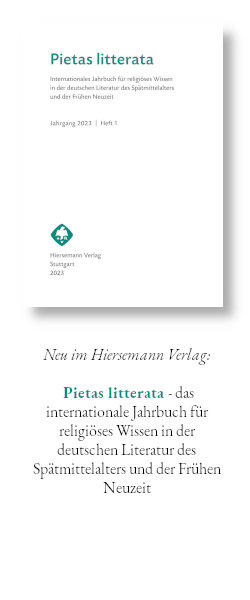Päpstliche Kommunikationsmacht zwischen humilitas und potestas. Die synodalen Briefe Gregors des Großen im Kontext der Pentarchie
DOI:
https://doi.org/10.36191/mjb/2024-59-3-4Abstract
Tristan Spillmann: Papal Communicative Power between humilitas and potestas. The Synodal Letters of Gregory the Great in the Context of the Pentarchy
This paper examines the so-called ›synodal letter‹ (epistula synodalis) of Pope Gregory the Great (590 – 604), its ecclesiastical and social functions, style, content and place within his extensive registrum epistularum that contains over 850 letters. At the beginning of his pontificate, the pope sent his synodal letter to the four other patriarchs, informing them about his recent episcopal election and confirming his orthodox profession of faith. So far, scholarship emphasised its distinctive con-tent and its discreet and unassuming style which allegedly conceals any claims to papal supremacy. Gregory uses the conventional letter to re-flect on his qualification as a bishop and simultaneously offers a guide-line to the perfect (clerical) leader (rector) of Christianity. By assuming the epistolary role of an ascetic and teacher who not only applies a thorough humble style but also practically displays his attitude in his self-fashioning, he manages to express his ecclesiastical demands and latently claims communicative power within the Pentarchy. Gregory skilfully applies a ›humble‹ stylistic approach in his letter to display an alleged position of weakness, which is not a mere expression of a conventional mannerism, but, in fact, a literary practice to establish a hierarchical order between him as pope and the other patriarchs while formally maintaining episcopal equivalence between all members of the Pentarchy. Thereby, he is able to encipher his papal program and subvert the patriarchal communication by occupying a certain ecclesi-astical discourse about the authority and eligibility of bishops, as well as the conduct of episcopal duties, the latter addressed in his synodical replies to recently appointed patriarchs.


